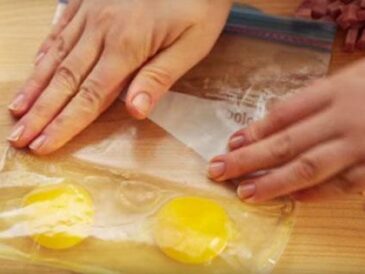Measuring and Mixing the Ingredients
- In a large bowl, combine flour, yeast, sugar, and salt.
- Gradually add lukewarm water and olive oil while mixing with a spoon or hand.
- Mix until the dough forms a sticky ball.
Kneading Techniques for Soft Bread
Knead the dough for about 10 minutes until it becomes smooth and elastic. Use a light dusting of flour if the dough is too sticky.
The Rising Process
Tips for Proofing the Dough
- Place the dough in a greased bowl and cover with a damp kitchen towel.
- Let it rise in a warm place for 1-2 hours until it doubles in size.
How to Achieve the Perfect Texture
Ensure the dough is not over-proofed; it should bounce back slightly when pressed.
Shaping and Baking
Traditional Shapes and Sizes of Turkish Bread
Turkish bread can be oval, round, or rectangular. Traditional pide has a flat, boat-like shape.
Baking Tips for a Golden Crust
- Preheat the oven to 450°F (230°C).
- Brush the bread with olive oil and sprinkle sesame or nigella seeds.
- Bake for 15-20 minutes until golden and puffed.
Serving Suggestions
Accompaniments for Turkish Bread
Serve with hummus, tzatziki, or olive oil and balsamic vinegar for dipping.
Creative Uses in Meals
- Wrap sandwiches
- Serve as a side for soups and stews
- Create Turkish-style pizzas with toppings
Common Mistakes to Avoid
Troubleshooting Dough Issues
- Dough too sticky? Add a small amount of flour.
- Dough not rising? Check the yeast’s expiration date and the water temperature.
Preventing a Hard Crust
Avoid overbaking and ensure the oven has enough humidity by placing a small tray of water at the bottom.
FAQs
1. Can I freeze Turkish bread dough?
Yes, shape the dough before freezing, then thaw and bake as usual.
2. What’s the best flour to use?
Bread flour is ideal for a chewy texture, but all-purpose flour works too.
3. Can I make Turkish bread gluten-free?
Yes, use gluten-free flour blends designed for bread-making.
4. How do I store leftover bread?
Wrap it in a clean towel and keep it in an airtight container for up to 3 days.
5. Is olive oil necessary?
Yes, it adds moisture and enhances the bread’s flavor.
6. Can I use whole wheat flour?
Absolutely! Mix it with all-purpose flour for a healthier option.
Conclusion
Homemade Turkish bread is a delightful addition to any meal, offering both flavor and versatility. With this recipe, you can bring a taste of Turkey into your kitchen and enjoy the satisfaction of baking something truly special




